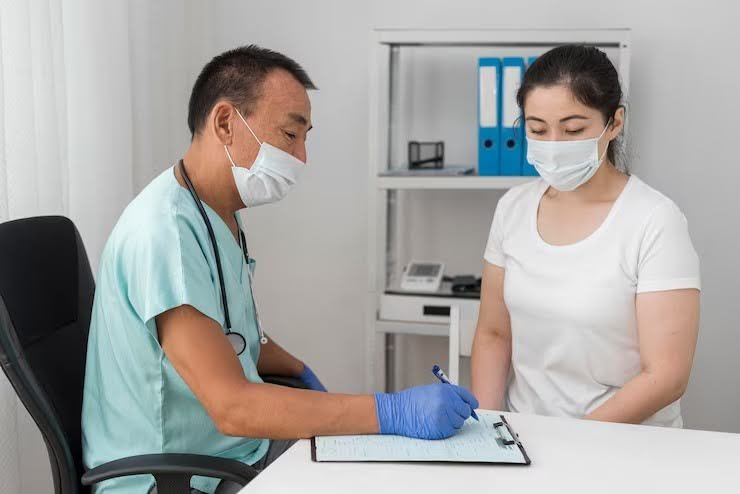
No one likes to imagine a time when they might be too unwell to make decisions for themselves. But life is unpredictable, and planning ahead can ease future burdens, not just for you, but for your loved ones too. That’s where advance medical directives in Singapore come in. It’s a way to make sure your voice is heard, even when you might not be able to speak for yourself.
Whether you’re just starting to look into this or someone has mentioned it in passing, you might be wondering: What are advance medical directives, and how do they work in Singapore? Let’s unpack this in simple terms.
What Are Advance Medical Directives?
Put simply, an advance medical directive (AMD) is a legal document that tells your doctor you don’t want extraordinary life-sustaining treatment if you’re terminally ill and unconscious, with no hope of recovery. This decision is made while you are still mentally sound.
The main purpose? To prevent unnecessary suffering and allow nature to take its course, without prolonging life artificially.
This isn’t about ending life prematurely. It’s about allowing death to happen naturally if recovery is no longer possible. It gives both doctors and family members clarity, and most importantly, it respects your wishes.
Who Can Make An Advance Medical Directive?

Not everyone can make an advance medical directive, but if you’re a Singapore citizen or permanent resident aged 21 and above, and you’re of sound mind, you’re eligible. “Sound mind” means that you fully understand what you’re signing and the consequences of it. It also means you’re not being influenced or pressured by anyone else.
The process is safeguarded to ensure it’s completely voluntary. To formalise it, you’ll need to fill out the official AMD form and sign it in front of two witnesses. One of them must be a registered doctor who will certify that you’re mentally competent and making the decision freely.
The second witness must also not stand to gain from your death, so typically, they cannot be immediate family members or someone who might inherit your assets.
This extra step may seem strict, but it’s there to protect your autonomy and make sure the directive is made purely out of your own will.
How Do Doctors Know You’ve Made One?
Once your AMD is submitted and registered with the Registrar of Advanced Medical Directives under the Ministry of Health, it’s stored securely and confidentially. You won’t receive a copy, and you don’t need to carry it around; there’s no need to inform your family either, although many choose to do so for transparency.
Doctors will only check the AMD registry under specific conditions: if you’re unconscious, terminally ill, and in a situation where extraordinary life-sustaining treatment is being considered. If these conditions are met, your doctor will contact the Registrar to confirm whether a valid AMD exists.
Once confirmed, the doctor is legally obliged to respect it. This means they must refrain from administering extraordinary life-sustaining treatment that would only serve to delay the dying process.
It’s important to note that the AMD is not automatically activated just because you’re in the hospital or unwell. It only applies under very specific end-of-life circumstances, making it a well-defined and tightly regulated tool.
Can You Cancel Your Directive?

Yes, you can cancel your advance medical directive at any time. Making an AMD is your personal choice, and so is changing your mind. Life circumstances, personal beliefs, or medical opinions might shift over time, and the law in Singapore recognises that.
To cancel your directive, you’ll need to complete a revocation form. This form must be signed in front of at least one witness, who confirms that you’re still mentally sound and making the decision of your own accord. Once completed, it should be submitted to the Registrar of Advance Medical Directives to formally void your previous AMD.
Conclusion About Advanced Medical Directives In Singapore
Advance medical directives in Singapore aren’t just pieces of paper. They’re a way to take control of your future and ease decision-making for those you care about. And while it might seem like something to put off, making an AMD now could spare your family painful uncertainty later.
If you’re considering preparing an advance medical directive or have questions about how it may affect your legal rights, it’s worth speaking to someone who understands the law inside and out. At Tembusu Law, our team includes some of the best criminal lawyers and family lawyers in Singapore, ready to guide you through every step.
Don’t wait for life to make decisions for you; contact us today for a free consultation.
Frequently Asked Questions About Advanced Medical Directives In Singapore
Who Is Eligible To Make An Advance Medical Directive?
Anyone who is at least 21 years old, mentally sound, and not under pressure or coercion can make an AMD in Singapore.
How Do I Make An Advance Medical Directive?
You’ll need to complete a specific form, sign it in front of two witnesses (one of whom must be a doctor), and send it to the Registrar of Advance Medical Directives.
Can I Change My Mind After Making An AMD?
Yes, you can cancel your directive anytime by submitting a revocation form. The decision is yours, and you can update it if your views change.
Does My Family Need To Agree With My AMD?
No. Your AMD is a personal decision and legally binding. Doctors are required to follow it even if family members disagree.
Is An AMD The Same As A Living Will?
They’re similar but not the same. A living will covers a wider range of medical wishes, while an AMD in Singapore specifically relates to withholding life-sustaining treatment in end-of-life situations.